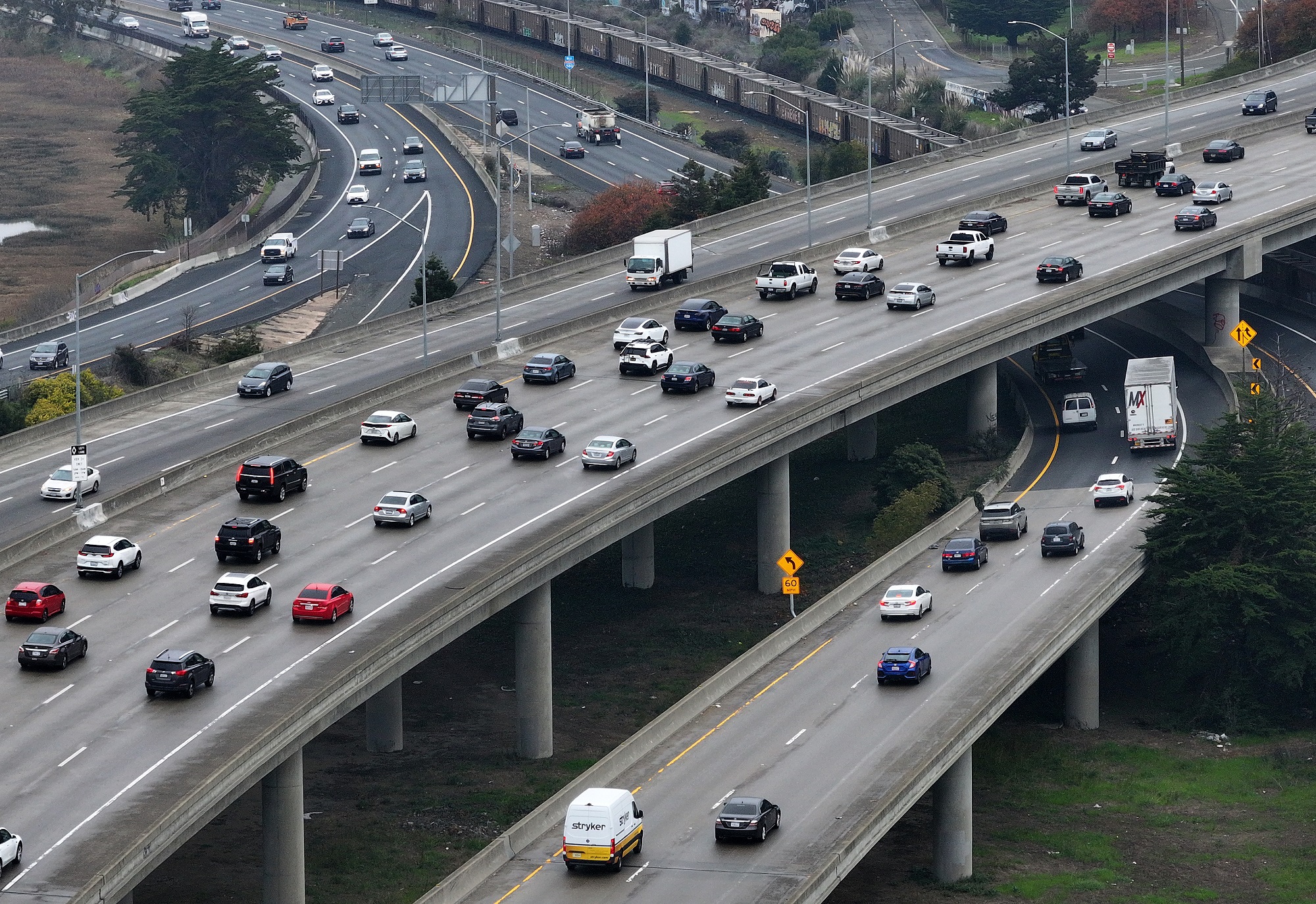During a live-streamed press conference on Thursday, Trump called California’s clean air rules “a disaster for this country” and touted his actions as a “rescue of the U.S. auto industry from destruction.”
Representatives of the petroleum industry applauded the administration’s move.
“Today’s historic signing is critical for protecting U.S. families, manufacturing workers, and our national security,” American Petroleum Institute president Mike Sommers and American Fuel & Petrochemical Manufacturers president Chet Thompson wrote in a joint statement. “We thank President Trump for keeping his promise to American voters to end these extreme and restrictive policies.”
Eric Sauer, CEO of the California Trucking Association, told KQED he thanks the Trump Administration for signing the resolutions, saying, “trucking companies across the country faced crushing economic consequences from unattainable and unachievable regulations.”
“We now look forward to a productive dialogue on setting and achieving realistic goals,” Sauer added.
The majority of California’s planet-warming emissions come from transportation, and the same is true nationwide.
 Vehicles travel along Interstate 80 on Jan. 16, 2024, in Berkeley.
Vehicles travel along Interstate 80 on Jan. 16, 2024, in Berkeley.
Californians are breathing significantly less harmful vehicle pollution than 25 years ago, thanks to a 65% drop in PM2.5 exposure from cars, trucks and other vehicles, according to a new study by UC Berkeley, CalEPA and the University of Washington. (Justin Sullivan/Getty Images)
California has regulated its own vehicle pollution since the 1960s, before the Clean Air Act was signed into law in 1970. Due to the state’s historically horrendous air pollution, the federal government granted California the authority to set its own emissions standards, as long as they were stricter than federal rules. Those rules would then require approval from the EPA through waivers for final approval, and other states can adopt identical versions.
Clean air groups and environmental organizations ridiculed the rulings, saying the administration is weaponizing the Congressional Review Act, a mechanism used by Congress that requires a simple majority vote to overturn the EPA’s waivers. These organizations say that now 11 other states will lose their ability to match California’s efforts, and the U.S. will lose out on building its electric vehicle market to China.
“We suffer from the worst air pollution in this country and the federal government is making it harder to protect people,” said Adrian Martinez, an attorney with environmental group Earthjustice.
Mike Young, executive director of California Environmental Voters, wrote in a statement on Thursday that the actions show that the “President is siding with polluters over people.”
“This is planned chaos, orchestrated by big oil and corporate polluters to keep us locked into a dangerous, polluting vehicle market when we need bold action the most,” wrote Young.
Rep. Mike Levin, Calif.-49, who represents most of San Diego’s North County and part of southern Orange County, wrote in a statement that the administration’s ruling could turn around decades of work to clean up “nonstop smog alerts” in Southern California and said “clean air shouldn’t be negotiable.”
“We’re not going back,” he said. “Not to the smog. Not to the asthma. And not to a future where polluters get to call the shots.”



















